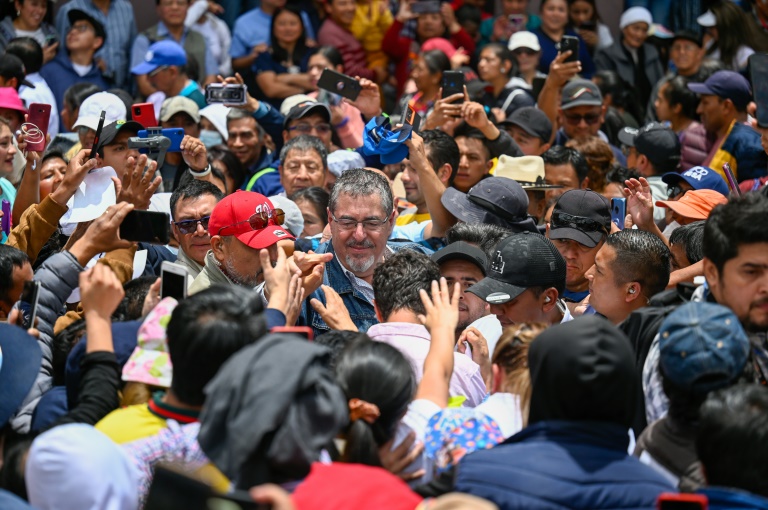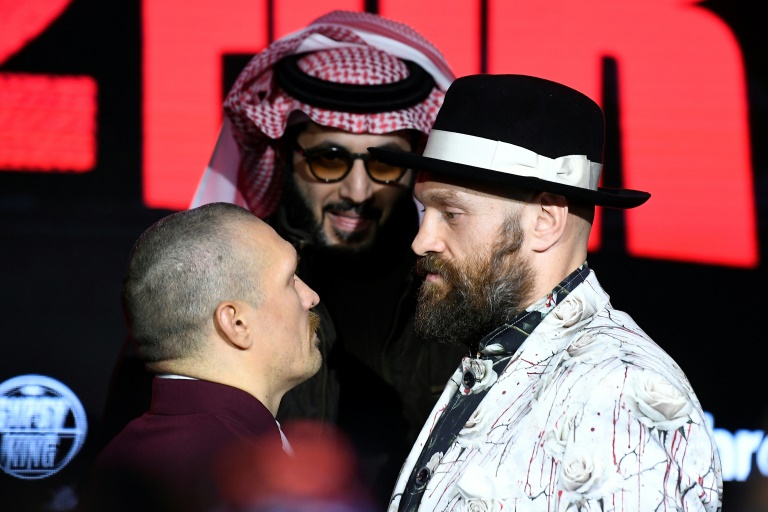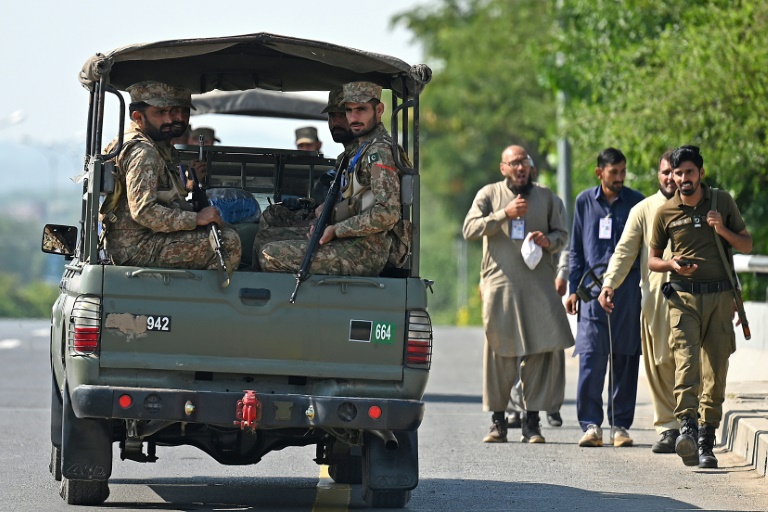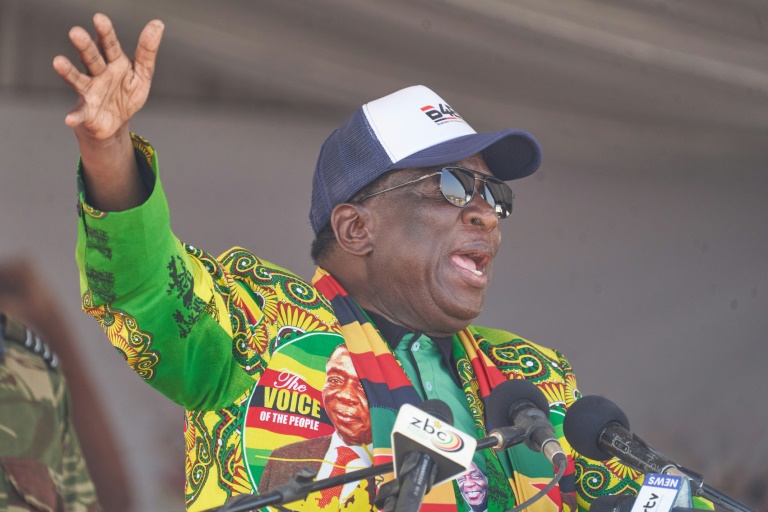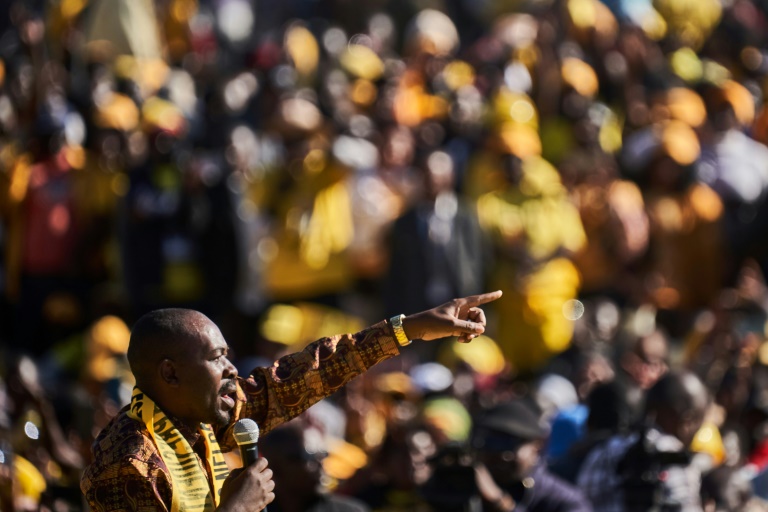AFP
Bernardo Arevalo swept from obscurity to become president of Guatemala, his anti-corruption crusade winning the hearts of voters who had long given up hope of change in the troubled nation.
The bespectacled 64-year-old sociologist may be the son of an ex-president, but his father served eight decades ago and he was trailing far behind before the first round of the election in June.
However, he pulled off a massive upset by coming second and surged to the top of opinion polls before the runoff — shaking the country’s corrupt elite while energizing the electorate.
He won the presidential election on Sunday with 59 percent, trouncing his rival Sandra Torres who came second with 36 percent, according to official results from the election body, after 95 percent of votes were counted.
Arevalo will be Guatemala’s first leftist president in 12 years when he takes office in January.
Guatemala “needs honesty and decency to bring about development,” he told AFP in June.
On the campaign trail he doubled down on his anti-graft message, striking a chord in a nation where grinding poverty, violence, and graft send thousands abroad every year in search of a better life, many to the United States.
“We have been the victims, the prey, of corrupt politicians for years,” Arevalo said on the campaign trail.
All eyes will now be on the reaction from those in the halls of power to Arevalo’s election, after a concerted effort by a top prosecutor to have him disqualified from the race.
After his shock first-round performance, eight right-wing parties challenged the outcome.
This was followed by a judge suspending his Semilla political party, prompting protests domestically and rebukes internationally over alleged election meddling.
The suspension was later overturned, but an anti-graft prosecutor — who is under US sanctions for suspected corruption — has continued probing the party.
The prosecutor, Rafael Curruchiche, said he did not rule out more raids and possible arrests after the election.
Arevalo claimed to be the victim of “political persecution by a corrupt minority that knows it is losing power by the day.”
In the first round, more than 17.3 percent of votes cast were invalid — more than the percentage won by any single candidate, and seen as gloomy evidence of voter despair.
The TSE national election body reported “a historic turnout percentage” at the close of Sunday’s voting, with 44 percent of 9.4 million registered voters casting their ballots in the second round — which typically sees lower participation.
In 2019, only 42 percent turned out to vote.
Arevalo especially inspired the youth.
“As young people we hope that the country will change, and new opportunities will arise, and that every youth without a job will have one because of the new government,” nursing student Wilson Itzep told AFP before the vote.
“Yes, I have felt the need to emigrate due to the lack of work, and poverty. But if Semilla wins, maybe I will stay,” said Itzep, who sees Arevalo as “someone who is going to bring order and justice.”
Arevalo is the son of reformist president Juan Jose Arevalo (1945-1951), who is fondly remembered as the first democratically elected leader of the country after the dictatorship of Jorge Ubico, an admirer of Adolf Hitler who imposed forced labor on the indigenous Mayan population.
“I am not my father, but I am walking the same path he forged and we will do it together,” he told his final rally.
Arevalo was born in Montevideo, the capital of Uruguay, where his father was exiled after a coup ousted his successor.
His family later moved to Venezuela, Mexico, and Chile before he returned to Guatemala aged 15. He studied sociology in Israel.
Arevalo served as deputy foreign minister and then ambassador to Spain in the mid-nineties under late-president Ramiro de Leon Carpio.
He is married to a doctor, Lucrecia Peinado. They each have three children from previous relationships.
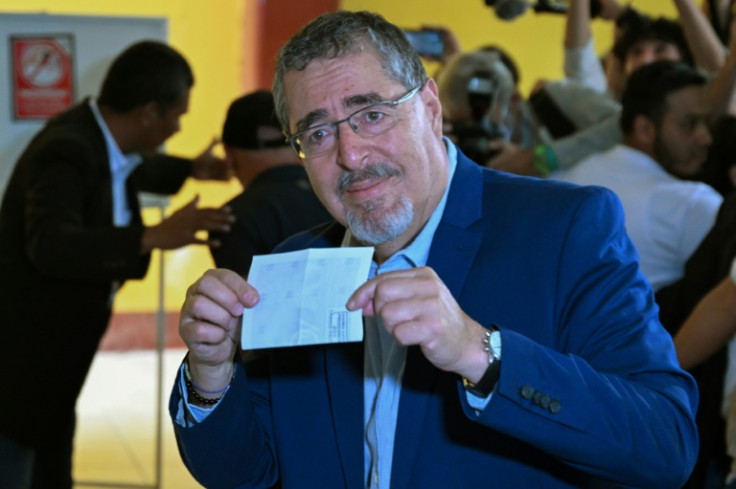
AFP

